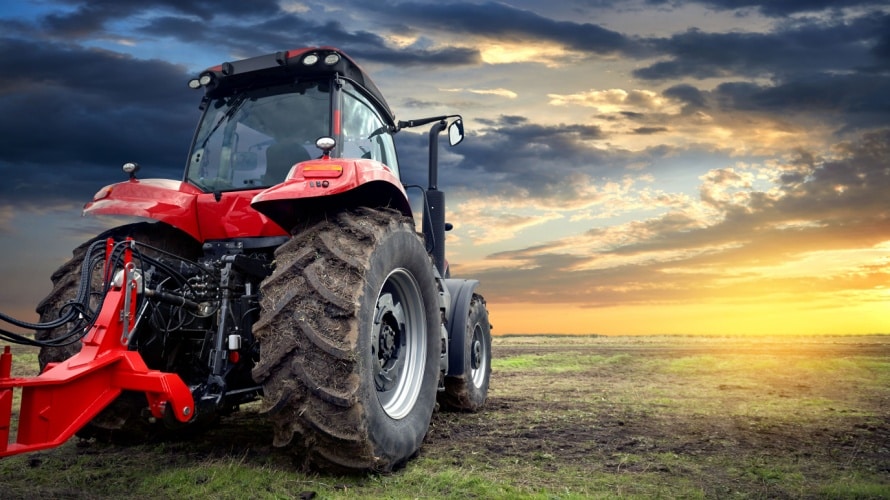Harvesting the Best Deals: Finding the Best Tractor Tires for Sale at TIRECRAFT
April 19, 2024
Uncategorized

In the world of agriculture, where every minute counts and productivity is paramount, having the right tractor tires can make all the difference. TIRECRAFT, a trusted name in tire solutions, offers a wide range of tractor tires for sale, to meet the diverse needs of farmers nationwide.
Let us explore what factors farmers should consider when selecting tractor tires. Understand how tire size and tread design impact performance. Quality tires offer advantages. Proper installation and maintenance can extend their lifespan and improve performance.
Factors to Consider When Selecting Tractor Tires
Choosing the right tractor tires is crucial for optimizing performance and efficiency on the farm. Farmers should consider several factors when making their selection:
Terrain and Conditions: It is essential to assess the terrain and typical weather conditions on the farm. Factors such as soil type, moisture levels, and slope gradients will influence the type of tires needed for optimal traction and stability.
Application: Consider the specific tasks the tractor will perform, such as plowing, planting, harvesting, or hauling. Different applications may require tires with varying tread patterns, sidewall strengths, and load-bearing capacities.
Load Capacity: Ensure that the selected tires can handle the weight of the tractor and any attached implements or loads. Overloading tires can lead to premature wear and reduced performance.
Durability: Look for tires constructed from high-quality materials that offer durability and resistance to punctures, cuts, and abrasions. Durable tires can withstand the rigors of daily farm operations and minimize downtime due to tire damage.
The Impact of Tire Size and Tread Design
The size and tread design of tractor tires plays a significant role in their performance across different farming conditions:
Tire Size: The right tire size is crucial for maintaining proper ground clearance, traction, and stability. Larger tires provide better flotation and traction in soft or muddy soils. In comparison, smaller tires may offer more maneuverability in tight spaces.
Tread Design: Tractor tires’ tread pattern determines their grip, self-cleaning ability, and traction on various surfaces. Lug, bar, or radial tread designs are tailored for specific applications and soil types. Deep, aggressive treads excel in muddy conditions, while shallower treads perform well on hard-packed or rocky terrain.
Long-Term Benefits of Investing in Quality Tractor Tires
Investing in high-quality tractor tires can yield significant long-term benefits for farm productivity and efficiency:
Enhanced Performance: Quality tires provide better traction, stability, and maneuverability. Allowing farmers to work more efficiently and complete tasks in less time.
Reduced Downtime: Durable tires are less prone to damage and punctures, reducing the risk of unexpected downtime and costly repairs. This ensures that farm operations remain on schedule, especially during critical planting or harvesting seasons.
Improved Fuel Efficiency: Optimal tire performance reduces rolling resistance and fuel consumption, resulting in cost savings over time. Efficient tires also minimize soil compaction, preserving soil health and fertility for future crops.
Extended Lifespan: High-quality tires are designed to withstand the demands of heavy farm machinery and last longer than lower-quality alternatives. This reduces the frequency of tire replacements and associated expenses, ultimately saving farmers both time and money.
Proper Installation and Maintenance
To maximize the lifespan and performance of tractor tires, farmers should follow these tips for proper installation and maintenance:
Correct Inflation: Ensure tires are inflated to the manufacturer’s recommended pressure to optimize performance and prevent uneven wear.
Regular Inspections: Periodically inspect tires for signs of damage, wear, or abnormal tread wear patterns. Replace tires that show excessive wear or damage to maintain safety and performance.
Balancing and Alignment: Properly balance and align tires to minimize vibration, reduce wear, and prolong tire lifespan. Misaligned or unbalanced tires can cause premature wear and affect tractor performance.
Seasonal Storage: Seasonal Storage: To prevent deterioration, store tires in a cool, dry place away from direct sunlight and sources of heat. Proper storage helps preserve tire integrity during periods of non-use.
Farmers can make informed decisions when selecting tractor tires for their specific agricultural needs by considering terrain, application, tire size, and tread design. Investing in high-quality tires from TIRECRAFT ensures enhanced performance, increased productivity, and long-term cost savings for farm operations. With proper installation and maintenance practices, farmers can prolong the lifespan and maximize the performance of their tractor tires. Ultimately reaping the benefits of a well-equipped and efficient farm fleet.
Back

